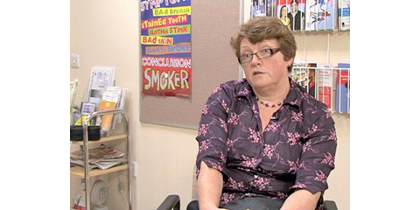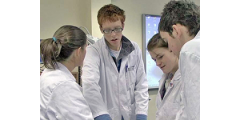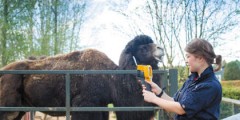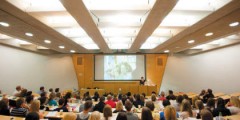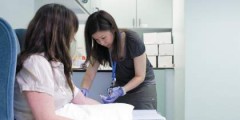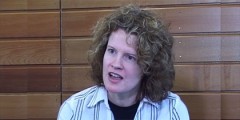Placements in Nursing: academic, mentor and student expectations
January 26, 2010
Video >> Alison: “Fifty percent of the nursing courses are practice which requires a range of practical placements to give students lots of different experience and, for each placement, they need a designated mentor who has that professional qualification.” Annie: “I think doctors are very, I think a lot of their training is very physically …
Perceptions of PhD students and supervisors of the academic and transferable skills training at the University of Nottingham
September 30, 2009
Sara Goodacre, Matthew Jones and Rumiana Ray: “The last decade has seen the initialisation and development of specific and generic skills training for PhD students at universities. Whilst the purpose of subject-specific skills training is to increase and validate the practical and professional competency of students in order to successfully complete their PhD programme, generic …
Perceptions of first year undergraduates of facilitated and non-facilitated small group learning environments
September 20, 2009
Kevin Gough, Karl Klisch, Rachael Tarlinton and Lisa Yon: “Student-centered learning is of growing importance within Higher Education and increasingly includes student-led as well as facilitated small group learning environments. The School of Veterinary Medicine and Science has adopted both of these approaches, with students undertaking facilitated clinical relevance (CR) and non-facilitated directed group learning …
Learning communication skills from groupwork in practical sessions
August 2, 2009
Video >> Video playing: “You should always clip before performing an ultrasound examination. Air and dirt trapped within the animal’s coat will interfere with the transmission of ultrasound and prevent you obtaining diagnostic images.” Sarah: “They work in groups through quite a lot of the practicals so a number of the skills that they have …
Linking theory to practice in an undergraduate veterinary curriculum using case-based teaching: students’ perspectives
September 9, 2008
Hany Elsheikha: Background: “Case-based teaching (CBT) has been used extensively in medical and dental educational programs to develop critical thinking skills via a learner-centred approach. At the School of Veterinary Medicine and Science, University of Nottingham CBT was introduced as an ancillary teaching intervention to integrate clinically relevant material into the basic science component of …
Vague expectations and diverse preferences: a study of undergraduate students at Nottingham University Business School
January 28, 2008
Mohsen Derregia: “The increased number of students in higher education has coincided with a shift towards seeing students as ‘customers’ who should have their expectations fulfilled to be satisfied. A number of studies have looked at student expectation about methods of education, such as lectures and seminars in the hope of identifying some factors that …
Learning from lectures: a dyslexic student’s view
June 18, 2007
Video >> Kate: “Are there any teaching and learning strategies that some of your tutors may adopt that are particularly supportive of your study?” Annie Evans, student, Archaeology: “The thing I’ve found really useful is we have one lecturer who just puts everything on WebCT (now Moodle), like seminar reading lists…absolutely everything, journals…and then its …
Interprofessional teaching of communication skills
September 12, 2006
Simon Conroy, Lyneth Evans, Sujay Galen, Amy McPherson and Nick Raine-Fenning: Background “Communication skills are essential for all healthcare professionals when interacting with patients. Improving their communication skills can also lead to improved health outcomes for patients. Video feedback gives the student an opportunity for reflection, and is advocated by professional bodies in healthcare. “There …
The good, the bad and the ugly: students’ experiences of group projects
January 17, 2006
Nicola Gray: “Background: Group projects have the potential to engage a large cohort of students in exercises that complement other aspects of the course. Effective use of resources is an important driver for course organisers. For pharmacy students, the importance of team-working in health care means that these exercises could provide skills to benefit their …

